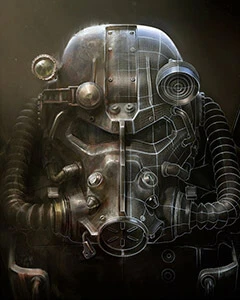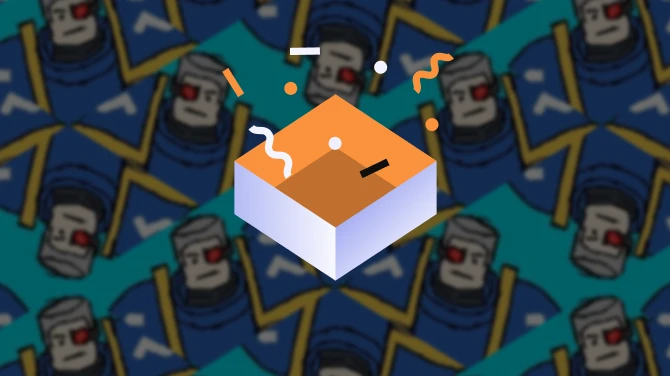This guide assumes a basic knowledge of quests and the story manager. You really don't need much. If you've worked with quests before you can probably just poke at the example plugin to figure things out. If you think you need more information on quests and the story manager, you can find that at the following pages:
- Quest Editor Reference
- Quest Tutorial: Basic One-Time Setup
- Skyrim CK: Tutorials Category
- Skyrim CK: Story Manager Tutorial
- Skyrim CK: Story Manager Category
Alternatively, this is a video that covers creating a basic random encounter quest:
(The video is unavailable for some reason. I'll look into replacing it in the future, but for now it is what it is.)
Assuming you know how the story manager works and have tried to use it in the past, you've likely run into the story manager's random encounter section, consisting of a variety of script event branches and nodes that include "RE" in their name. Unlike most of the tree, it is difficult to add your own to these because they're designed to process in order, and will stop once a compatible event has been selected.
To address the compatibility problem, this framework adds a variety of random branch nodes that you can safely add your content to, and arranges the game and DLC content within these nodes so that you no longer need to fight with or work around them.
Assault Quests
- Assault quests are battles between two hostile groups. Similar quests also tend to show up in Scene and Travel quests (below), but this category is specifically for the battles. Examples from the base game include ghouls fighting super mutants, and gulpers fighting trappers. The story manager branch nodes you can add your own quest nodes to are:
- REAssaultQuestsParent: A generic parent for these quests. This affects non-urban areas within the commonwealth.
- REAssaultQuestsUrbanParent: A generic parent for these quests. This affects urban areas within the commonwealth.
- DLC03REAssaultQuestsParent: This node will process assault quests while the player is within the "The Island" worldspace.
- DLC04REAssaultQuestsParent: This node will process assault quests while the player is within the "Nuka World" worldspace, but outside the park.
Camp Quests
- Camp quests populate and use the assorted campsites you can find in the game. Encounters provided by Bethesda include a ghoul ambush, an empty camp full of mines, and a pair of travelers discussing what does and does not qualify as a sandwich. The story manager branch nodes you can add your own quest nodes to are:
- RECampQuestsParent: A generic parent for these quests. This affects non-urban areas within the commonwealth.
- RECampQuestsNIGHTParent: A generic parent for these quests. This affects non-urban areas within the commonwealth, at night.
- RECampQuestsUrbanParent: A generic parent for these quests. This affects urban areas within the commonwealth.
- DLC03RECampQuestsParent: This node will process camp quests while the player is within the "The Island" worldspace.
- DLC04RECampQuestsParent: This node will process camp quests while the player is within the "Nuka World" worldspace, but outside the park.
- DLC04RECampNightQuestsParent: This node will process camp quests at night while the player is within the "Nuka World" worldspace, but outside the park.
Checkpoint Quests
- Checkpoint quests occur late in the game, when the faction the player completed the main quest with will set up checkpoints along the road. The story manager branch nodes you can add your own quest nodes to are:
- RECheckpointInitQuestsParent: This node will process checkpoint quests while the player is within the commonwealth.
- RECheckpointEventQuestsParent: This node will process checkpoint quests while the player is within the commonwealth.
Chokepoint Quests
- Chokepoint quests are random encounters where a faction has set up a checkpoint on the road. These frequently occur on bridges and other points where you would need to go out of your way to avoid the encounter. Examples from the game include a pile of mines, super mutants, and a group of minutemen defending the checkpoint. The story manager branch nodes you can add your own quest nodes to are:
- REChokepointQuestsParent: A generic parent for these quests. This affects non-urban areas within the commonwealth.
- REChokepointQuestsUrbanParent: A generic parent for these quests. This affects urban areas within the commonwealth.
- DLC03REChokepointQuestsParent: This node will process chokepoint quests while the player is within the "The Island" worldspace.
- DLC04REChokepointQuestsParent: This node will process chokepoint quests while the player is within the "Nuka World" worldspace, but outside the park.
Object Quests
- Object quests are randomly encountered objects. Unlike other random encounter types, object quests will consume the encounter point and become a permanent addition to the game world. Due to their nature as consumable locations that make a permanent addition to the game world, I recommend only using this encounter type if you have something substantial to add. Other encounter types, with their transient nature, are far better suited to most encounter that might be added to the game.
- Examples from the base game and DLC include things such as a minefield, a destroyed car with feral ghouls waiting in ambush, and a jury-rigged resource scanner. The story manager branch nodes you can add your own quest nodes to are:
- REObjectQuestsParent: The generic parent for these quests. This affects the commonwealth and other non-DLC worldspaces.
- DLC03REObjectQuestsParent: This node will process object quests while the player is within the "The Island" worldspace.
- DLC04REObjectQuestsParent: This node will process object quests while the player is within the "Nuka World" worldspace.
Scene Quests
- Scene quests are randomly encountered interactions and scenes that the player can find. These include things such as pair of deathclaws battling each other, a random dead animal, and that eyebot advertising a job at Cambridge Polymer Labs. The story manager branch nodes you can add your own quest nodes to are:
- RESceneQuestsParent: A generic parent for these quests. This affects non-urban areas within the commonwealth.
- RESceneQuestsNIGHTParent: A generic parent for these quests. This affects non-urban areas within the commonwealth, at night.
- RESceneQuestsUrbanParent: A generic parent for these quests. This affects urban areas within the commonwealth.
- DLC03RESceneQuestsParent: This node will process scene quests while the player is within the "The Island" worldspace.
- DLC04RESceneQuestsParent: This node will process scene quests while the player is within the "Nuka World" worldspace, but outside the park.
- DLC04RESceneNightQuestsParent: This node will process scene quests at night while the player is within the "Nuka World" worldspace, but outside the park.
- DLC04RESceneQuestsParkParent: This node will process scene quests while the player is within the Nuka World park.
Travel Quests
- Travel quests are random encounters with enemies, allies, and neutral parties while the player is moving from place to place. Examples from the base game involve herds of various enemies like radstags or feral ghouls, patrols of super mutants, and a Mister Gutsy on the hunt for spies. The story manager branch nodes you can add your own quest nodes to are:
- RETravelQuestsParent: A generic parent for these quests. This affects non-urban areas within the commonwealth.
- RETravelQuestsNIGHTParent: A generic parent for these quests. This affects non-urban areas within the commonwealth, at night.
- RETravelQuestsUrbanParent: A generic parent for these quests. This affects urban areas within the commonwealth.
- DLC03RETravelQuestsParent: This node will process travel quests while the player is within the "The Island" worldspace.
- DLC04RETravelQuestsParent: This node will process travel quests while the player is within the "Nuka World" worldspace, but outside the park.
- DLC04RETravelQuestsParkParent: This node will process travel quests while the player is within the Nuka World park.
Treasure Hunt Quests
- Treasure hunt quests involve the player encountering an NPC who is hunting for a specific object. Bethesda provided only a few examples, such as a raider hunting for caps or a gunner looking for a gun. The story manager branch nodes you can add your own quest nodes to are:
- RETreasureHuntRandomQuestsParent: This is a generic node for treasure hunting quests, and handles all of the ones you can encounter aside from a Jamaica Plain treasure hunter.
Vertibird Quests
- Vertibird quests generate flying vertibirds and control their actions. Examples from the base game include a simple vertibird flyover and vertibirds attacking a target location or enemy group. The story manager branch nodes you can add your own quest nodes to are:
- REVertibirdQuestsParent: The generic parent for these quests. This affects the commonwealth and other non-DLC worldspaces.
- DLC03REVertibirdQuestsParent: This node will process vertibird quests while the player is within the "The Island" worldspace.
If you'd like more information on random encounters from the base game and where to find them, this article covers a great deal of that and even has maps of locations where you can trigger encounters.
Okay, so that's neat but how does that interact with the game?
All over the world in the commonwealth, nuka world, and far harbor, you will occasionally find batches of markers laid out, like this:

That's a random encounter point, specifically the one northeast of Starlight Drive-in. If you select that trigger box and pull it up in the editor, you'll see that the base object is named RETriggerSomething, where Something is the type of encounter it triggers. In this case, the base object is RETriggerScene, meaning that you will run into Scene events at this location:

So if I wanted to add a new scene to the game, this is one of the places I could test it and see it in action. If you want to add a different type of event, you'll need to find a relevant encounter point in the world to use for testing. For example, if you follow the road south from the encounter point above, you'll find the following RETriggerObject trigger near the Super Duper Mart:

Okay, this is a lot of info, but why should I use the framework?
In the base game, the random encounter story manager is very poorly designed. With the way it is set up, you have the following as part of the random encounter system:

For the sake of convenience, let's assume it is daytime, the player is in the commonwealth wilderness, and they have not progressed automatron, nuka world, or far harbor enough for their random encounters. They've just triggered a Scene node. What happens?
- The game starts at the very top of that list
- The game begins working through the list from the top to bottom, one node at a time.
- Because of the conditions we set above, the first valid node the game encounters is "Stacked Branch Node: REMainBranch"
- The game opens that node and begins checking the nodes inside it to see if one is valid.
- This continues, top to bottom, through "Stacked Branch Node: REBranch", "Stacked Branch Node: REBranchNormalTriggers", and "Stacked Branch Node: RENonUrban".
- Finally, the game hits "Random Quest Node: RESceneQuests", picks a quest at random from that node, and stops checking for random events.
Now, this presents an interesting problem. How does one add their own random scene to this? You could add it to RESceneQuests, but that would conflict with any other mod that does the same. You could do what Automatron does, and add it before RESceneQuests as your own quest node, with a chance to skip.
And if you add something that would get checked after RESceneQuests, or another mod's change pushes yours around and it winds up after RESceneQuests, your mod takes precedence over everything after it. If you didn't set a chance to skip your encounter, it would guarantee nothing after it ever shows up. If you did set a random chance to skip, that has a significant impact on overall encounter probabilities. And the more mods take that approach, the more it impacts every random encounter available. The game stops checking after it finds a valid scene, after all.
Now, there are two ways around this in the base game. The first is using the "Shares Event" flag on a quest node. This works just fine for NPC conversations and all, but it would be kind of awkward to see two or more entirely different scenes playing out in the same spot at the same time. The other option is setting the branch node that contains them to "random" rather than "stacked". When a branch node is set to random, it picks one of the nodes it contains at, you guessed it, random. As opposed to "stacked", which will check every option in the list, in the order shown in the creation kit.
That's a neat idea and all, and it would work quite well if the branch node only contains one type of event. But what happens if I switch RENonUrban to "random" rather than "stacked"? It will pick one of those 11 children it has at random. If the node event wouldn't work, it tries again until it finds one that works, or has tested all 11. That sort of works, but is also incredibly inefficient and wasteful.
So how did I fix that?
I replaced all of those quest nodes with "parent" branch nodes, and moved the quests I replaced into the new branch nodes. The parent branches are set to random, and all of the children are the appropriate event type. This has a small impact on event rarity, most notable with Automatron due to it previously being overwhelmingly likely to win out. Aside from that impact on rarity, it means any quest nodes you add to the parent nodes also have a good chance of getting called, because instead of waiting in line and hoping nobody in front of you wins, you're now participating in a raffle with only a few people as competition.
This is all very interesting, but how do I use it?
That's actually pretty easy! All you have to do is add a new Story Manager Quest Node to one of the parent nodes listed above, and add your encounters and events to the new quest node. There are plenty of quests in the game that you can check and compare against as examples of how to use the markers and setup the story manager gives you.
You don't need to worry about rearranging anything, or about fighting with the base game's content. So long as your new quests are in a new quest node you've added to one of the parents above, it can get called at random as part of the relevant encounter type. If you have any trouble getting it to show up because encounters from the base game are getting picked instead, grab the random encounter disabler from optional files to make testing easier.
For reference, this is what the example plugin looks like in the creation kit and xedit:


Don't mind the previous sibling record in the xedit shot, when the game loads it figures out that's an invalid entry and sets it to null. I just forgot to null it myself when I was making the plugin.









0 comments